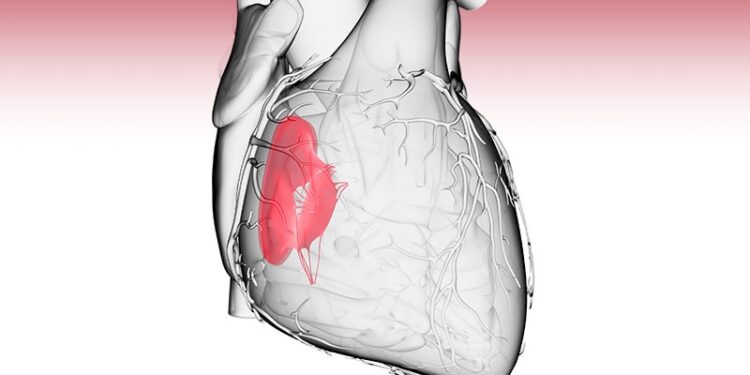The recent decision by the US Centers for Medicare and Medicaid Services (CMS) to cover tricuspid transcatheter edge-to-edge repair (T-TEER) could help change the model through which physicians think about right-side heart failure, according to one of the clinicians who worked on the trials of the procedure.
On July 2, CMS agreed to cover T-TEER for the treatment of tricuspid regurgitation but only through the coverage with evidence development process, which requires procedures to be performed as part of a CMS-approved study.
Some comments solicited during the decision process raised concerns T-TEER has not shown clinically meaningful benefit and that the TRILUMINATE pivotal trial did not show a decrease in mortality, tricuspid valve surgeries, or overall hospitalizations compared to medical therapy.
“While we agree that there are evidence gaps that still need to be addressed regarding T-TEER, we believe the evidence overall, while insufficient, is promising enough to allow coverage with evidence development,” CMS said in announcing its decision.
The study criteria — all-cause mortality and hospitalizations through a minimum of 24 months — “strike the appropriate balance between evidence generation and patient access,” the agency said.
The patient must have symptomatic tricuspid regurgitation despite optimal medical therapy and be under the care of a heart team that includes a cardiac surgeon, an interventional cardiologist, a heart failure specialist, and an interventional echocardiographer.
Shamir Mehta, MD, cardiologist at McMaster University in Hamilton, Ontario, Canada, and an investigator on TRILUMINATE, said the trial provided evidence of benefit. “The trial showed improvements in quality of life, and that’s an important outcome from the patients’ perspective,” Mehta said.
And TRILUMINATE did see a reduction in heart failure hospitalization at 2 years, he noted. “Maybe over the longer term, we begin to see that correlating with a reduction in tricuspid regurgitation,” he said.
Mehta acknowledged some of the criticisms of TRILUMINATE were valid but said the main issue was some of the assumptions underlying the trial turned out not to be correct. Prior to TRILUMINATE, right heart failure and tricuspid regurgitation were understudied, so the study and the subsequent TRISCEND II trial were designed using the same paradigm for reduction in events that are used for left-sided heart failure, he said.
“We made an assumption that the same outcomes that we observed in mitral regurgitation would also apply to patients with right heart failure,” he said. “Maybe, the outcomes that we should be looking at with right-sided heart failure should be different.”
Patients with left-sided heart failure tend to present with pulmonary edema and require hospitalisation for acute heart failure. While those with right-sided heart failure accumulate fluid in the periphery and are often not admitted to hospital but treated in the clinic with diuretics and develop and are admitted for other complications such as renal failure.
“There are two types of heart failure, and they can present in very different ways,” Mehta said.
The trials that will be conducted under the CED process should help to clarify those differences, and lead to a better understanding of when T-TEER is the right choice for a patient. “This is an evolving area and we’re learning more as we have more randomized trials,” he said.
Mehta is an investigator on the TRILUMINATE and CLASP TR trials.
Brian Owens is a freelance journalist based in New Brunswick, Canada.
Source link : https://www.medscape.com/viewarticle/cms-okays-coverage-tricuspid-teer-caveats-2025a1000j4c?src=rss
Author :
Publish date : 2025-07-18 13:03:00
Copyright for syndicated content belongs to the linked Source.








